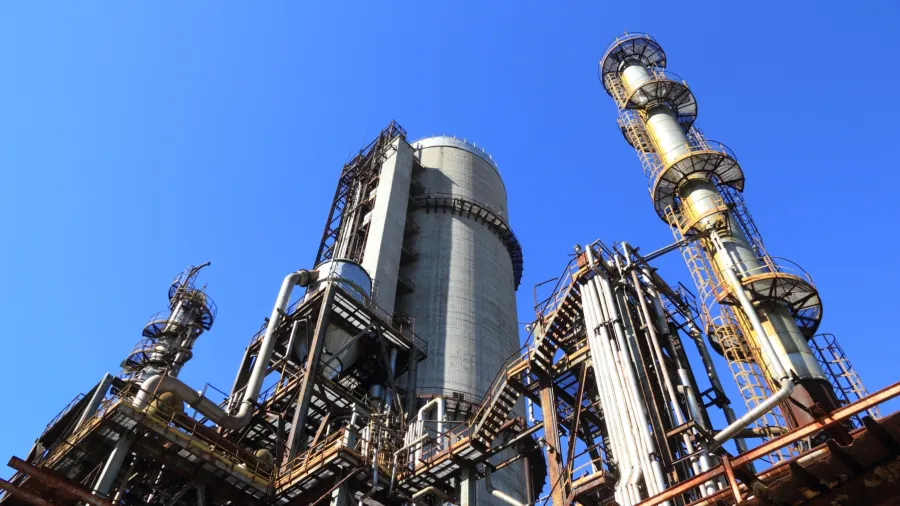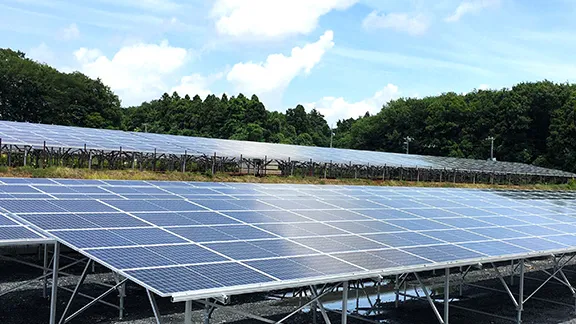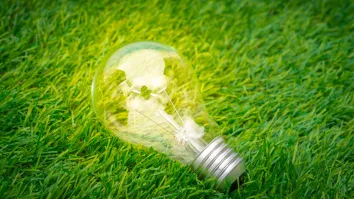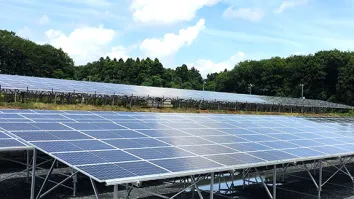
VENDOR VIEW: What are the benefits and challenges to AI adoption in power plants?
Industry leaders said AI adoption will help power firms predict system operations of power plants, allowing them to optimise the plants.
Artificial intelligence (AI) could find its niche in the power sector as the integration of the technology into the power plants is expected to optimise the operations of the facilities. This will enable operators to generate more electricity and save costs, amongst other benefits.
However, industry leaders told Asian Power that in adopting AI, the energy sector must address various challenges including sufficient data collection, cybersecurity risks, and equipping its talents with the skills to manage the technology to realise the full potential of AI.
Akihiro Ondo
Managing Director and CEO
Mitsubishi Power Asia Pacific
As our society progresses, humans have constructed and improved power plants, tirelessly overseeing their operations and intervening when issues arise. However, with the emergence of artificial intelligence (AI) and related machine learning technologies, we are witnessing the advent of technologies capable of processing immense volumes of data to boost efficiency, predict problems and optimise operations to enable humans to do more than they could do alone.
AI-enabled machines can monitor and optimise every aspect of a power plant’s operation. The processing capacity of algorithms uses the wealth of available information to monitor performance and make incremental improvements to generate more electricity with less fuel. Plants using these advanced analytics can also predict problems before they arise and calculate the best time to make repairs to cut operating downtime.
Many of our power generation equipment installations are equipped with control systems that are connected to remote monitoring facilities in Japan, the Philippines and the United States. This integration with our global network of TOMONI® HUB Analytics and Performance Centers enables us to access real-time data, allowing us to continually monitor the operational status of various equipment and apply advanced analytics including AI. In the event of any anomalies or irregularities, our responsive operations team can promptly make recommendations to mitigate potential issues. Furthermore, this data-driven insight enables us to fine-tune maintenance procedures, optimising overall site performance.
Mitsubishi Power continues to advance digital solutions that progressively move the world closer to autonomous operation, with ongoing validation at the T-Point 2 facility. Given the unique needs and nature of every power plant, we collaborate closely with power generators to help them select intelligent, digital solutions that support their specific business needs.
Seamlessly integrating AI and related advanced analytics into new or existing energy systems is a multifaceted endeavour that involves careful consideration of numerous critical factors, such as data quality and availability, cybersecurity safeguards and the necessary skills training.
AI systems are inherently data-dependent. Power plant operators must navigate the complex task of integrating data from diverse sources, including sensors, equipment, and historical records. Ensuring the data's quality, consistency, and reliability is a paramount challenge. Inaccurate or incomplete data can introduce inaccuracies in AI predictions and recommendations. Therefore, prediction results are not always foolproof, and it is necessary to build a system to rectify any disparities between predictions and actual results.
As the digital transformation progresses, power plants face a potential risk of cybersecurity threats. AI systems, if not adequately secured, can introduce vulnerabilities. Protecting sensitive data and critical infrastructure from cyberattacks is a pressing concern. The adoption of digital solutions also requires specialised skills and resources, which may not always be readily available within the existing workforce. Human involvement remains critical to the future energy story. The vast streams of information that AI-enabled machines collate and process empower human operators to make more informed decisions.
Digitalisation and AI hold the potential to provide substantial support to ageing power plants that may be facing significant challenges to their continuing viability due to increased competition, tighter regulations and declining experience in the workforce.
As renewable energy sources, distributed generation, energy storage solutions and more efficient power plants emerge, ageing power plants experience a decline in income due to reduced kWh sales. This drop ultimately leads to diminished profitability, exerting intense pressure on O&M budgets. Furthermore, the intermittent nature of renewable energy generation results in a volatile supply-demand balance on the grid. Digital solutions and AI can play a pivotal role in predicting and preventing equipment failures, minimising unplanned downtime, and ensuring dependable operations.
Environmental concerns have also led to stricter emissions requirements and more stringent grid codes – critical to driving and achieving much-needed net zero goals. Digital technologies that leverage plant data can aid in capturing and transferring this invaluable knowledge, providing the bridge from a retiring experienced workforce to future plant operators.
Jürgen Weichenberger
VP, AI - New Value Streams, AI Hub, Schneider Digital
Schneider Electric
Within power plant operations and maintenance, AI improves several critical KPIs, including production yield, costs of operations, inspection, and maintenance, asset uptime, and worker safety. Let us elaborate on some use cases. AI is beneficial for generation forecasting. Current forecasting methods use a limited number of factors making it inaccurate and unreliable for power plant operators. This leads to operational inefficiencies, wastages, and regulatory penalties if they fail to deliver on their capacity obligations. AI-based models can be leveraged by power plant operators, both thermal and renewables, to accurately predict energy output under different conditions (weather, solar radiance, wind speed, cloud cover, rainfall, snowpack, fuel prices, etc.)
To better serve the customers, it is highly critical for power plant operators to predict electricity demand from its users. AI models consider customer demographics, industrial customer needs, EV charging infrastructure, etc. to generate demand forecasts in predefined time intervals.
Power companies can also leverage AI models to predict the mean time to failure and mean time to repair of power plant assets, such as boilers, pumps, transformers, switchgear, etc. The data is captured with the help of IoT sensors, and our AI solutions provide a flexible deployment strategy that enables AI models to run in the Cloud or on the Edge, allowing power plant operators to predict equipment failures and schedule maintenance proactively. This preventive approach extends the lifespan of critical assets, protects the initial capital investments, and reduces maintenance costs.
They can also harness AI for enhanced system control across various critical components to ensure the thermal power plant is operating at peak energy efficiency and minimising emissions. AI models can optimise boiler operations by predicting and controlling the fuel combustion process. Feed water parameters can be monitored by sensors to further optimise the energy transfer process. AI-based anomaly detection can help identify inefficiencies and leaks in steam traps thus optimising energy usage.
There are various challenges that power firms need to address. Firstly, there is a need for sufficient data collection using sensors and adequate internet connectivity to leverage cloud-based AI solutions and technologies. Data integration with products from multiple vendors could increase the complexity and duration of the development process. Plant operators encounter difficulties in building AI solutions that can be scalable across multiple sites and are adaptable to changing conditions.
Schneider Electric offers versatile hardware and IoT infrastructure to overcome the above-mentioned challenges by supporting a wide array of sensor interfaces, making it easier to integrate with sensors from multiple vendors seamlessly. This standardized hardware and AI solutions can be scaled across multiple sites and regions, providing power plant operators with a flexible and scalable infrastructure that can adapt to their changing needs. Additionally, the deployment of AI models on the edge enables low latency and real-time decision-making for a wide variety of AI use cases.
Integrating AI into critical infrastructure like Energy Management Systems involves navigating complex requirements, and it is essential to demonstrate that AI implementations adhere to industry-specific regulations. Striking a balance between innovation and compliance is crucial, as power plant operators seek to leverage AI for enhanced efficiency while maintaining the integrity and reliability of their systems within the regulatory framework.
Without AI, power plants may struggle to harness the full potential of their operational data, leading to inefficiencies in manual monitoring and decision-making processes. Without AI-driven predictive maintenance, asset utilisation may decrease, resulting in increased downtime and decreased efficiency. Embracing AI in power plants can mitigate these issues by providing proactive maintenance, optimising asset performance, and increasing operational efficiency, ultimately translating into cost savings and enhanced customer satisfaction.


















 Advertise
Advertise







